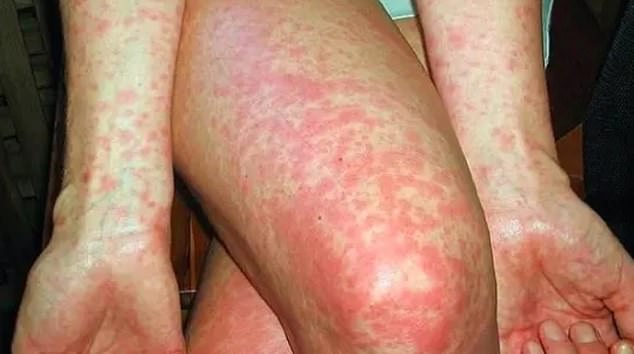[ad_1]
A West Australian man has been hospitalised with meningococcal disease, marking the state’s sixth case of the deadly disease this year.
WA Health said on Tuesday the man had been diagnosed with meningococcal Type B and was recovering in hospital.
The six cases so far in 2025 add to the 13 recorded in WA in 2024, along with one death.
Meningococcal disease is not easily spread and is a relatively uncommon illness.
While the bacteria can be found in droplets discharged through sneezing and coughing, it is not spread by saliva and cannot survive more than a few seconds outside a body.
Where it is contracted, however, the disease can kill from five to ten per cent of its patients while leaving a further 15 per cent with long-term complications.
In severe cases, it can kill patients within 24 hours of contracting the disease.
WA Health said long-term non-fatal complications include hearing loss, limb amputations and brain damage.

Meningococcal disease kills up to ten per cent of patients who sometimes develop a spotty red-purple rash with the appearance of small bleeding points under the skin (file image)

Pictured is a 3D microscope close-up of the meningococcus bacteria
If attended to quickly enough, meningococcal infection is treatable with antibiotics.
‘However, it can progress very rapidly so it is important that anyone with these symptoms seek medical attention urgently,’ WA Health said in a statement on Tuesday.
Symptoms include high fever, chills, headache, neck stiffness, nausea and vomiting, drowsiness, confusion and severe muscle and joint pains.
Sometimes, but not always, patients will develop a spotty red-purple rash with the appearance of small bleeding points under the skin.
Young children may present with fever, pale or blotchy complexion, vomiting, lethargy, poor feeding and rash.
Four cases of the disease were recorded by WA Health in a single week in April, two of which were recorded by siblings in the same household.
Three of those four cases were identified as Type B – the strain most likely to cause serious illness – prompting calls for the state government to fund free vaccination against Type B.

WA Health warned patients to immediately seek medical attention given the disease can progress ‘very rapidly’ (stock image)
There are two types of meningococcal vaccines – one designed to protect against Types A, C, W and Y and another for Type B.
The combined vaccine for A, C, W and Y strains is free for children aged 12-months under the National Immunisation Program but the Type B vaccine is not.
Due to its higher prevalence among Aboriginal children in WA, the Type B vaccine is offered free to Aboriginal children up to 12 months old.
It was made free for children and adolescents in South Australia in 2018 leading to a 60 per cent reduction in infant cases and 73 per cent for adolescents.
Queensland and the Northern Territory have since rolled out free Type B vaccination programs for adolescents.
Without subsidies, a single Type B jab can cost hundreds of dollars.
Last year, the Royal Australian College of General Practitioners (RACGP) called on the WA Government to close this ‘huge gap in immunisation coverage’.
‘We know that this vaccine is safe and effective – it’s the best protection against this deadly disease,’ RACGP Western Australia chair, Dr Ramya Raman said.
‘Making this vaccine free for kids and at-risk age groups will save lives.’
[ad_2]
This article was originally published by a www.dailymail.co.uk . Read the Original article here. .

